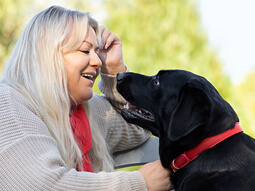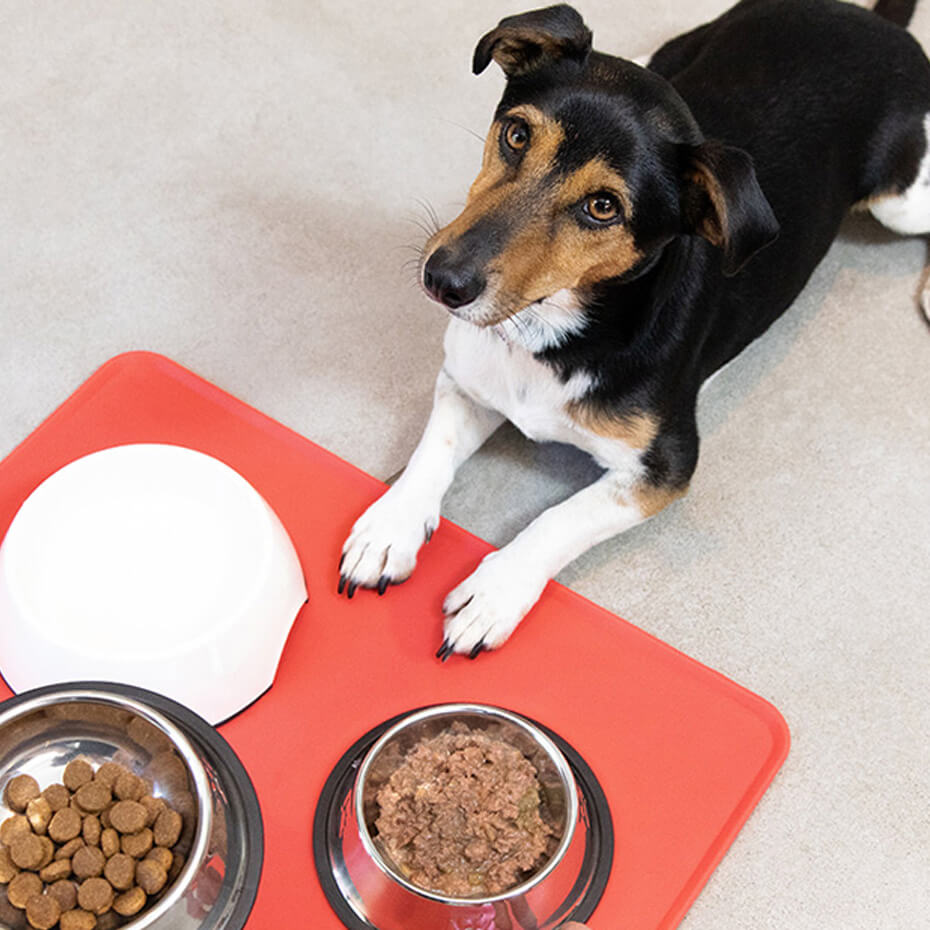
Dogs bring out many emotions in us, but are they experiencing the same feelings?
It was once thought that dogs, and all animals, were essentially organic robots that didn’t feel emotions; they simply followed their instincts like a machine follows its programming. But contemporary science has discovered that dogs go through similar chemical and hormonal changes as humans when experiencing emotions. The difference is dogs experience them on a more basic level. A common comparison is that a fully-grown dog has the same emotional capacity as a two and a half year old child. But as a human’s emotional range develops for several years, a canine reaches emotional maturity at around six months, depending on the breed.
So, what emotions do they feel? Scroll through and see below!
Joy
It’s written all over their face. Dogs are filled with joy when doing their favourite activities, from chasing tennis balls at the park to cuddling on the couch. No matter where they are or what they’re doing, dogs find a way to enjoy themselves!
Surprise
Dogs tend to be excitable and easily surprised, which can make for some hilarious moments. They have a healthy appetite for new experiences and different ways to play.
Disgust
Just as your dog has the ability to feel intense joy, he has the capacity to genuine disgust and distress. If your dog gives a look of wholehearted contempt, don’t worry! It’s just means he has a healthy emotional range (and may appreciate a little warmer water).
Fear
Fear is a familiar emotion for canines, and an essential survival mechanism. It tends to be provoked by scary sounds and stressful situations, but the amount of fear a dog experiences depends on how it was raised and individual personality. Guilt is a common emotion associated with dogs, but there is some disagreement among dog experts about whether canines feel guilt or if it’s just fear of being punished.
Sadness
This is a very real emotion for dogs, partly because it’s a common emotion among people. Dogs can sense your sadness and will often try to cheer you up by giving you attention, or show empathy by feeling sad along with you.
Anger
For better or worse, anger is a natural emotion for dogs. Anger or aggression can be caused by protective instincts, territorial issues or even genetics. However anger comes about, it’s important to protect yourself and your dog. It’s natural for dogs to feel this way from time to time, but you should note situations that tend to make them testy so these can be avoided in the future.
Curiosity
Dogs seem to have an endless interest for the world around them. They use their sense of smell like a fun-detector, and when they sniff something funny or strange they want to know more!
Love
This one’s no surprise; dogs are very capable of experiencing love. And they’re very good at showing it, too! No matter how big or small, dogs seem to have super-human hearts!
Honourable Mention:
Confusion
Many scholars insist that confusion is not an emotion, but a combination of fear and anger. And canine experts attest that dogs aren’t capable of experiencing such complex emotions.
Conclusion:
Although dogs don’t have the same range of emotions as we do, they are dynamic animals who have real feelings. They can even sense what people are feeling! Complex emotional states may be out of reach for our furry friends, but they’re experts at expressing the most important one, love.


